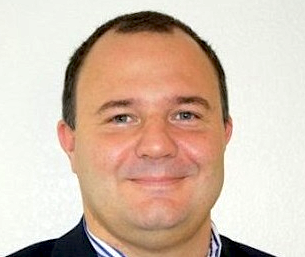Three ShoreTel partners will be the first to launch the vendor's new cloud proposition to the UK market. With the introduction of ShoreTel Cloud for Partners, Softcat, Solar Communications and Incom can now up their consultancy game with customers by offering a choice of user profiles including contact centre, mobility and UC.
The channel-only solution is based on ShoreTel's platform and advances its strategy to provide choice and flexibility for mid-market customers wanting to implement UC solutions on a pay-as-you-go model.
The scalable solution also enables capex purchases to be mixed with the opex spending model.
"Not only can UK customers purchase, deploy and manage ShoreTel systems on-premises, they may also choose to have those solutions delivered from the cloud by partners as a subscription service," said Adrian Hipkiss, VP of EMEA at ShoreTel.
He noted that the solution is a direct result of research gathered from the UK channel showing a customer requirement for cloud services and growth in UCaaS.
"The solution has also been designed to meet the requirements of the ShoreTel channel by complementing their existing access, call bundles and other managed services, enabling them to create complete end-to-end managed services," added Hipkiss.
"More and more enterprises in the UK are looking to the cloud as the most effective solution for their communications needs.
"ShoreTel Cloud for Partners is an opportunity for customers to buy into a cloud solution and have access to genuine choice and flexibility, which is particularly important in the competitive UK market.
"Our goal is to deliver, via our partners, high customer satisfaction and the low total cost of ownership of a stand-out managed service."
David Hughes, CEO at Incom, said: "ShoreTel Cloud for Partners complements the existing services we offer in support of our customers' network infrastructures like WAN and LAN. The result is a solution that's highly available, feature-rich and customisable to meet individual client requirements."
Darren Standing, Head of Products and Marketing at Solar Communications, added: "With a clear focus on user experience and scalability, ShoreTel Cloud for Partners enables us to offer our customers a solution that is scalable to address their needs not only today, but into the future, as requirements change with business growth."
Sam Routledge, Solutions Director at Softcat, stated: "As an extension of our customers' IT departments, we understand that cloud services are key to business growth today. This partnership with ShoreTel addresses this market demand and allows us to focus on the needs of each customer through an end-to-end cloud UC and contact centre offering."

 Cloud firm Outsourcery has augmented its restructured partner team with the appointment of Vicky Ryder as Head of Partner Sales.
Cloud firm Outsourcery has augmented its restructured partner team with the appointment of Vicky Ryder as Head of Partner Sales. Buoyed by its acquisition of Norman AV last November, AVG is now looking to expand its presence in the UK and Europe. Comms Dealer sister publication IT Europa caught up with Francois Daumard, VP of Global Channel Sales, during its UK roadshow last week.
Buoyed by its acquisition of Norman AV last November, AVG is now looking to expand its presence in the UK and Europe. Comms Dealer sister publication IT Europa caught up with Francois Daumard, VP of Global Channel Sales, during its UK roadshow last week.